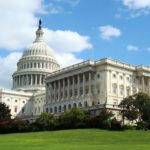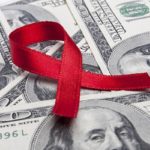This week’s NMAC Hangout is with leaders committed to ensuring that funding is stepped up to support the HIV infrastructure during and eventually after the COVID-19 outbreak. NMAC is very worried about what is happening to HIV services. Thursday’s webinar includes the following guests:
- John Barnes, Funders Concerned About AIDS
- Kali Lindsey, Elton John AIDS Foundation
- Darwin Thompson, Gilead Sciences, Inc.
Registration (space is limited)
Thursday, April 16th @ 10 AM (Eastern)
Thursday, April 16th @ 2 PM (Eastern)



John will give an overview of funding for HIV organizations during COVID-19. He will share some of the resources Funders Concerned About AIDS has developed. He will also discuss his agency’s report on the Philanthropic Support to Address HIV/AIDS in 2019.
Kali and Darwin will talk about their respective organization’s efforts to support the HIV infrastructure during COVID-19. Each organization has rapidly developed funding opportunities for current grantees to help them through these difficult times.
There will be time for questions and answers; however, please don’t ask specific questions about your nonprofit. This is a space for general questions.
For full disclosure, NMAC has been a grantee of both the Elton John AIDS Foundation and Gilead. We are grateful for their support; however, it is important to understand that their contributions do not impact any NMAC policies. NMAC intends to apply for support from Gilead’s COVID-19 initiative, but we are not eligible for the Elton John AIDS Foundation relief program.
Two weeks ago, I put forth a challenge to HIV funders to dramatically increase the financial commitment to supporting our community. Now more than ever, HIV service organizations need their support. Thank you to the Elton John AIDS Foundation and Gilead for stepping up. We hope others will join them.
NMAC will host a webinar for any donor who steps up to help HIV nonprofits during this difficult time. COVID-19 has put all of our futures at risk. When 2020 started, it was all about building plans to end the epidemic. Now it’s about the survival of the HIV infrastructure.
Yours in the struggle,

Paul Kawata







 We invite all people living with HIV/AIDS to join the call and share their experience of living with HIV during COVID-19. I know this is something that HHS and HRSA are tracking. Please join the call to share your concerns with Harold. It’s too soon to have real scientific studies, so we are looking for anecdotes for how PLHIV are coping.
We invite all people living with HIV/AIDS to join the call and share their experience of living with HIV during COVID-19. I know this is something that HHS and HRSA are tracking. Please join the call to share your concerns with Harold. It’s too soon to have real scientific studies, so we are looking for anecdotes for how PLHIV are coping. NMAC uses
NMAC uses 


 The purpose of the webinars is to discuss relief for nonprofits via the
The purpose of the webinars is to discuss relief for nonprofits via the 